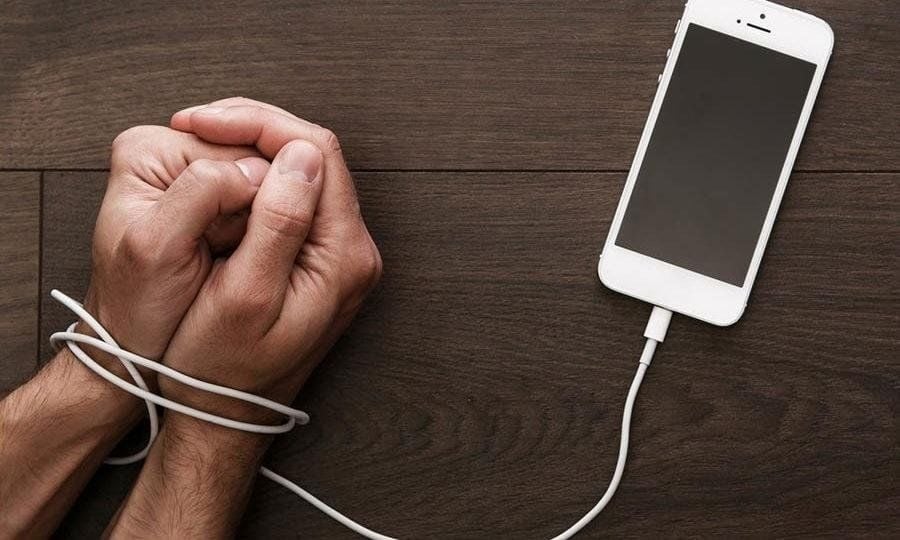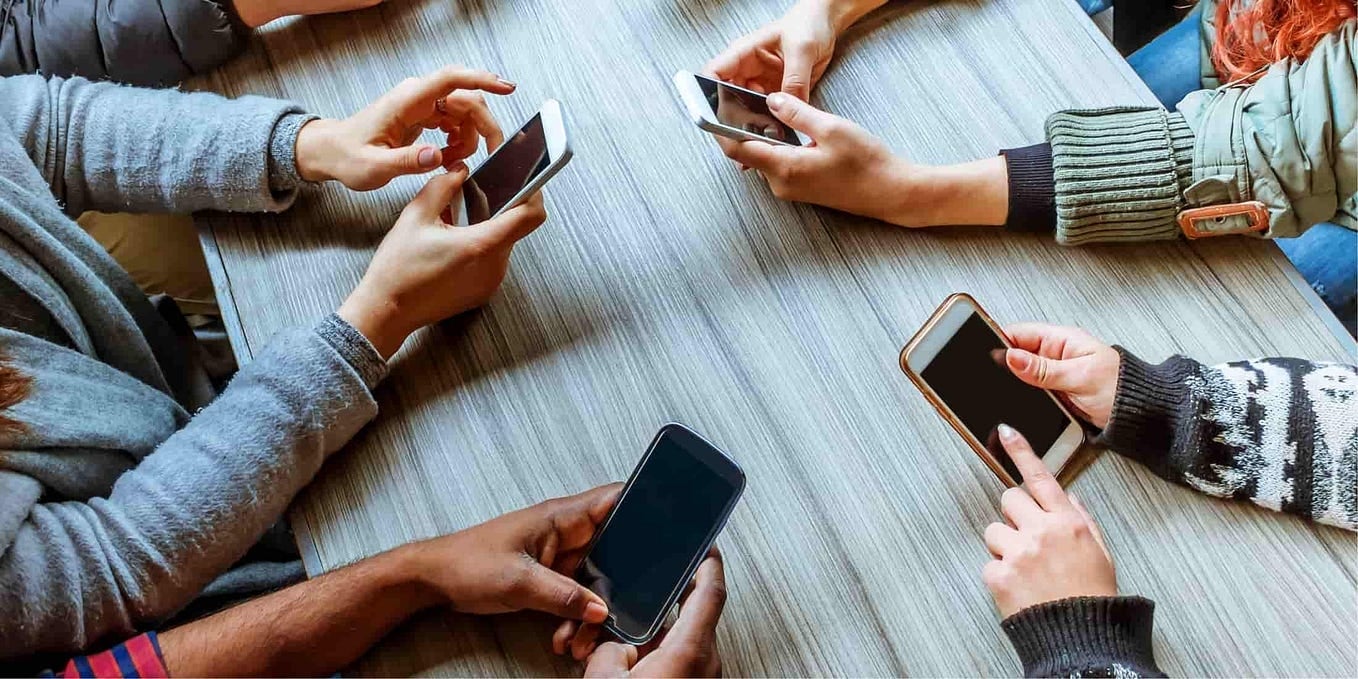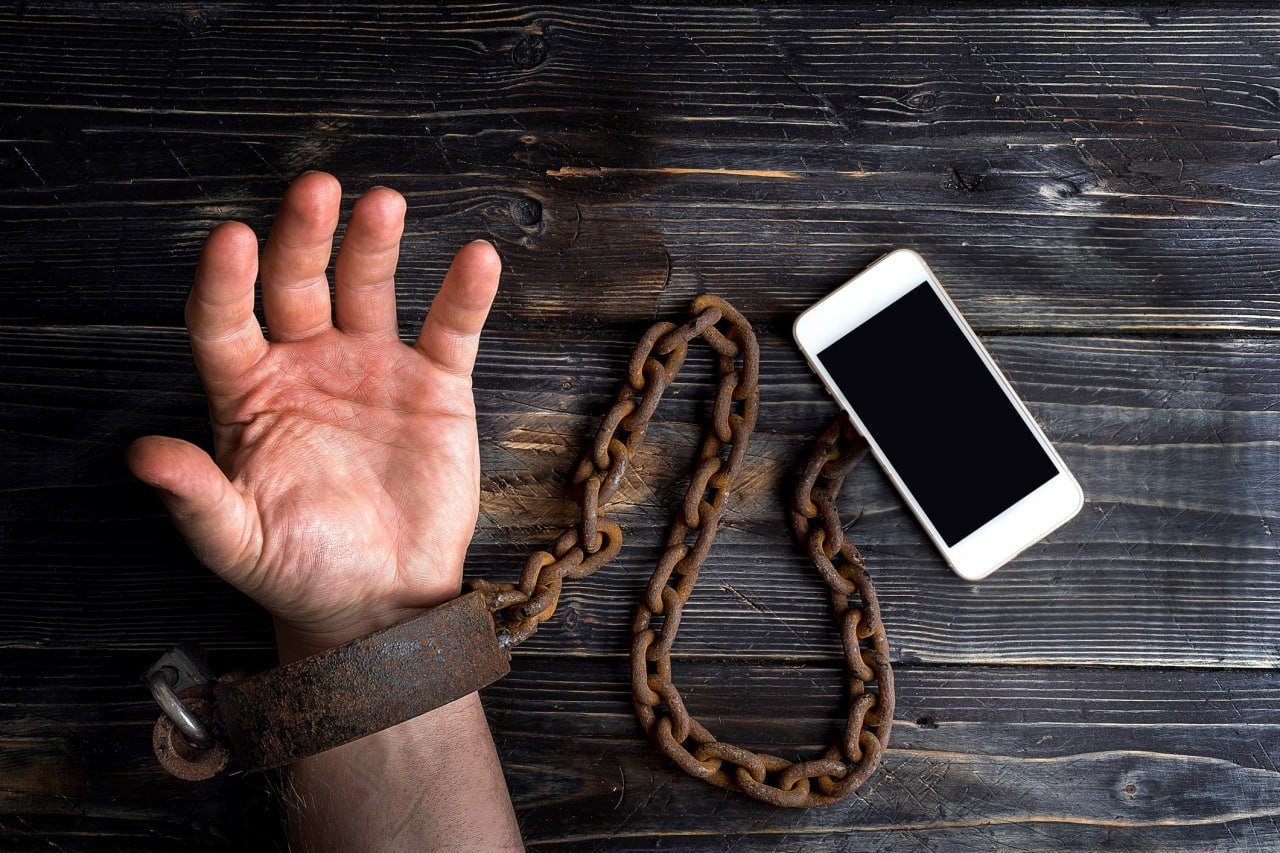We obviously communicate with one another over phone calls and text messages, as well as through social media, email, direct messaging, and video calls. We use our phones as cameras as well as for shopping, gaming, watching videos, and listening to podcasts.
In addition, we keep attendance records for sporting events on digital notebooks using apps like Evernote, Airplane, and Concert. Even alarm clocks have been replaced by smartphones, which can give us the resources we need to increase our productivity. Briefly put, our lives are now completely dependent on our mobile phones, but at what cost?
Alternatives to Cell Phone
RescueTime examined data from 11,000 of its users and discovered that, on average, they use their phones for 3 hours and 15 minutes each day. Similar findings were made by eMarketer, which discovered that American adults use their phones for 3 hours and 43 minutes daily.
However, these outcomes were obtained before the pandemic. For example, App Annie reported that consumers spent 1.6 trillion hours on their phones in the first half of 2020, with smartphone use in India increasing by 25% to 6.9 hours per day.
"Coronavirus has caused a two- to three-year spike in mobile phone use that has accelerated our transition to a world where mobile is a priority," said Lexi Sydow, head of insights at App Annie. Therefore, if phone use was a problem in the post-pandemic world, it is now worse, and that can be a challenging issue to address.
Phone Problem
We use our phones 58 times per day, which can have a great impact. For example, a study by the University of California Irvine found that it takes roughly 23 minutes and 15 seconds to regain focus after being distracted. Furthermore, multitasking studies reveal that "even the mental distraction that results from switching between tasks can consume up to 40% of a person's productive time," but the problem is getting worse.
Additionally, excessive screen time promotes a more sedentary way of life. This can consequently result in obesity, a higher risk of developing diabetes, as well as higher blood pressure or cholesterol. Moreover, electronics can disturb your sleep cycle because they emit blue rays, which can make you make more mistakes, make bad decisions, and endanger your health.
Also, chronic neck and back pain and elevated levels of depressive and anxious symptoms have all gotten worse over the past year as a result of the phenomenon known as "doom scrolling." Checking your phone constantly has a negative impact on your productivity, general health, and interpersonal relationships because it causes you to divide your attention between what's on your screen and the real-world interactions you have.

14 Approaches to Avoid Using Your Phone
How do you escape this situation given that phones have become a necessary evil? Here are 14 approaches to help you avoid using your phone:
1. Start a Conversation
It is intended that you engage in genuine conversation rather than using phone applications, as in the case of seeing a coworker during a coffee break and chatting with them. Similarly, when you are at home, set aside a space that is free from technology so that you can speak to your family without being interrupted by your phone.
But what if you're by yourself? You can make a phone call instead of sending an email in this situation, but give the person your full attention. This is important because it will strengthen your relationships with others, and in case you weren't aware, society's acceptance helps us live long and happy lives. Alternatively, if you are in a public place, start a friendly conversation with someone you do not know.
2. Read a Book or the Newspaper
Although reading books or the news on your phone has become simple, the situation is different. Reading the newspaper is healthy for you. A study in the journal "Social Science and Medicine" found that paper book readers aged an additional 23 months on average. Therefore, instead of picking up your phone in the morning, read a newspaper, a magazine of well-documented reporting, or your favorite book.
3. Create a Future Plan
Your time won't magically be organized because that requires some level of planning. Therefore, instead of mindlessly perusing the news online, bring a notebook and write down ideas and future plans; it's not necessary to get into the nitty-gritty. You can make a list of the meals you will prepare or the tasks that need to be done. Once you have these ideas, you can choose which ones to implement and develop a plan to do so. For example, consider how your family will spend a long vacation or how you will spend your time at work.
4. Go for a Walk
When you don't have your phone with you, walking has many advantages. You can think of it as a chance to take a brief break from the momentum of routine work and organize your thoughts.
- Walking reduces stress, improves mood, and increases self-esteem.
- Shedding extra pounds, even if it is only a 30-minute walk.
- Brings down blood pressure.
- Gives you more energy and better quality sleep.
- During and after the walk, you won't feel as hungry for unhealthy foods.

5. Start a New Hobby
Yoga and martial arts, for example, have numerous physical advantages, as do all hobbies. Playing an instrument has social and interpersonal benefits, while gardening, drawing, or cooking have psychological and emotional benefits. However, hobbies like writing, crafts, and meditation can inspire you and boost your self-esteem. Therefore, it's worth devoting 20–40 minutes a day to engaging in one of these activities rather than using your phone.
6. Show Gratitude
According to research in positive psychology, gratitude is a powerful and enduring predictor of happiness, according to Harvard Health Publishing. It facilitates the development of strong interpersonal bonds, the enjoyment of novel experiences, health improvement, and positive emotions in people. All of this can increase your productivity and inspire others.
How Do You Show Gratitude?
- Send a thank-you letter.
- Keep an appreciation diary.
- Count your blessings.
- Between you and yourself, express gratitude.
- Pray or practice meditation.
7. Take a Nap
Instead of checking your phone during the day, take a 15-minute nap to help you stay dozy while you work to refocus.
8. Exercise
According to some studies, just 11 minutes of exercise a day can lengthen your life. This is encouraging because we spend a lot of time sitting, which is bad for both our productivity and general health. So instead of picking up the phone the next time you feel like it, get up, stretch, and do some light exercises. You could also just spontaneously dance or go for a run.
9. Take Five Minutes to Breathe Deeply and Consistently
The best part about breathing exercises for relaxation and stress relief is that they can be performed anywhere.
10. Get Rid of Clutter
A little clutter is not always bad, as some people are more creative when they are surrounded by a little clutter. At the same time, a lot of clutter can be distracting and can make you feel more anxious or stressed. To avoid that, get rid of it. Start with a small space at a time.
If you have 30 minutes to spare in between virtual meetings and you're well prepared, turn off your phone, clean out your desk drawer, organize your filing cabinet, etc.

11. Play a Few Games
Playing certain games can increase blood flow and make you smile, improve your memory, hasten your decision-making, and sharpen your focus. However, they can also tire your brain. We're not talking about digital games here; rather, traditional mind games like sudoku or crossword puzzles, or if you enjoy chess or fishing.
12. Improve Your Maths Abilities
Although some people despise maths, we must know the time, calculate our budgets, cook, and give tips. In addition, maths skills boost our brainpower, self-confidence, and chances of landing a job. Even though there are YouTube videos and apps you can use, you should also try:
- Using the "Number 9 Method": If you want to add 9 to any number, first add 10, then subtract 1.
- Using the "5 Times" Trick: To multiply any number by 5, multiply the number by 10 and then divide by two.
- Do the Multiplication in Stages: If you want to multiply large numbers in your head, and 3 x 9 (27), after that, add the two numbers and you get on 267.
- Calculating Square Numbers Easily: If you want to find the square of 24, for example, round off the number to the closest and easiest round number, which is 20in this case. After that, add the remainder (4) to the original number to become 28. The first calculation should be 20 x 28, start with 2 x 28 = 56, then multiply by 10 to get 560. Now you just need to add the square of the remainder you have when rounding to the easy number, which in this case is 4. 4 x 4 = 16. Then, 560 + 16 = 576.
24 x 24 can be made like this: (20 x 28) + (4 x 4) = 576.
13. Consider Your Memories
The next time you want to relive your memories, think about using a physical photo album in addition to your Facebook albums, advises Dr. Tim Wildschut, who is in charge of a study on nostalgia. He says, "Our findings indicate that nostalgia, by enhancing optimism, can help individuals deal with psychological distress. Reminiscence can help maintain current feelings of self-worth and can contribute to having a brighter view of the future. Therefore, your outlook on the future improves.”
14. Take a Break
When you feel overburdened with work, you might find yourself doing nothing at all. This is when a brief period of reflection and rest is necessary. For example, if you are standing in line at the grocery store and have nothing else to do but use your phone, the bad news you have read will make you feel anxious. Instead, merely pause, become bored, or daydream. You can rest and think critically even during this brief break. Additionally, spending time alone with your thoughts can increase your empathy, resiliency, and productivity.
How Can Phone Use Be Reduced?
Some of us may not have a problem with this because many people can go for hours without using their phones, and some of them, like the elderly, always forget where they put them. However, this is not always the case because for some people, checking their phones becomes an addictive behavior. This is not your fault because many applications are made in the style of slot machines.
It is possible to separate yourself from your phone, by:
- Start slowly with 15-minute intervals, then extend the intervals by hiding your phone, such as by leaving it in a different room.
- Stop using your smartphone as an alarm clock; instead, use a traditional alarm clock if you need a wake-up call to prevent oversleeping.
- Set time constraints. For example, limit your phone use to 10 minutes during breaks.
- Use technology to help you, as the majority of smartphones and apps, including RescueTime, track how much time you spend on your phone. You can also block phone use during certain hours or if you go over a predetermined time limit.
- Set tech-free spaces, like the bedroom or dining room.
- Remove time-consuming and pointless apps like Facebook from your phone, or at the very least, your home screen.
If your problems persist, think about lowering the quality of your phone. That way, if you switch back to a foldable phone, you won't become dependent on it.






Add comment